Podcast 145: How Jon Dykstra is Making Over $40k Per Month Mostly with Display Ads and Informational Content
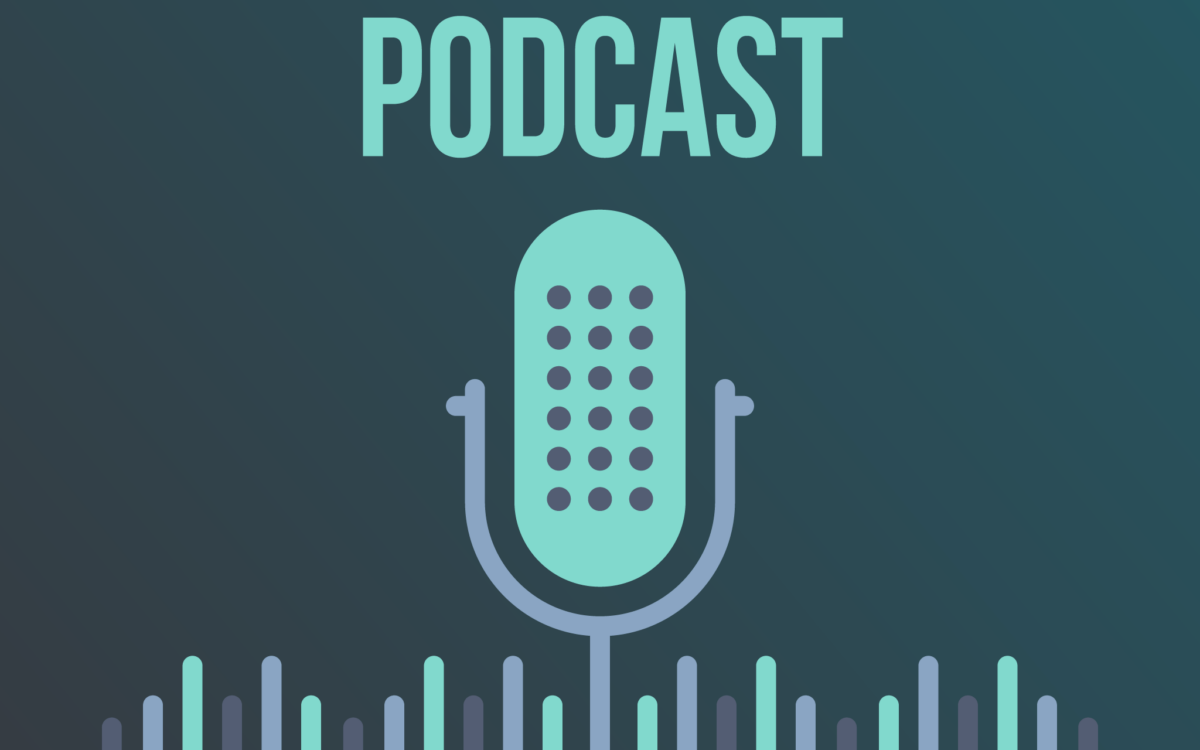
When you buy something through one of the links on our site, we may earn an affiliate commission.
Jon Dykstra from FatStacksBlog.com has a great business with several niche sites.
In fact, one of his niche sites is making over $40,000 a month!
I was able to sit down with Jon recently and interview him for the Niche Pursuits podcast. During this episode, you will hear him discuss how he builds his sites, what type of content he focuses on, and much more.
If you are interested in learning the step by step details of how Jon builds sites, you should check out his Blackroom Profits Course right here.
A couple of aspects that I found really interesting about Jon and his strategies were that he focuses mainly on informational content. In fact, he writes very few articles that target “money” keywords. In other words, he does very little writing about the “best xyz product” and making a commission on Amazon.
In fact, Jon is just concerned with getting traffic. If he can get more and more traffic, he knows that he can monetize with ad revenue. As a result, most of his income comes from display ads.
I hope you enjoy the interview!
Read the Full Transcript
Spencer: Hey everyone. . Welcome back to the Niche Pursuits Podcast. I’m really excited today to bring you an interview with Jon Dykstra from fatstacksblog.com. I love that blog name.
Jon is somebody that has come up in conversation and has been mentioned a number of times throughout the last few years. Jon and I have exchanged lots of emails but we had actually never connected via real-time call, had a chance to talk to each other. I’m really excited not only for my own chance to chat with him and get to know him a little bit better personally, but also to introduce you to Jon. You, the Niche Pursuits audience have the chance to listen in and learn about some of the strategies for building websites that has worked really well for him.
There’s a lot of tips and tricks that you can learn in this particular interview. If there were a couple of takeaways for me, one is just the very interesting strategy, the type of content that he produces and targets. He of course is always targeting keyword that he feels like he can rank for in Google, but he almost never targets buyer-intent keywords.
He is not trying, for the most part, to make money off of affiliate links, Amazon Associates, sales, that sort of thing, but really he’s focused on informational content, just content that gets a lot of traffic. I should clarify, he is not targeting high-traffic, high-volume keywords, but he just writes a lot of content. Even if it’s only getting 500 searches per month, he will write informational articles and he monetizes with display ads. There’s a lot of interesting strategies that he’s following, things that he shares, that he’s been able to build up his site.
One of his largest sites do $40,000 a month in gross revenue. A lot of takeaways hopefully that you will learn during this interview. I’m excited for you to hear what Jon Dykstra has to share. If you want to follow along with him, please go check out his blog at fatstacksblog.com.
Hey, Jon. Welcome to the Niche Pursuits Podcast.
Jon: Hey, Spencer. Thanks a lot for having me. It’s really good to be here.
Spencer: Absolutely. As we were chatting just a second ago, we’ve known each other online, exchanged emails quite a few times over the years. But it’s good to actually have you live on a call, be able to chat with you finally after all this time.
Jon: No doubt, right? It is good. It’s nice to chat with you in person here and I look forward to it.
Spencer: Definitely. To give people an idea of your background, we’re going to talk about the websites you’ve built and what you’re working on right now. Give us your professional background. What were you doing business-wise or work-wise, previous to building websites?
Jon: I used to practice law. I’m still a lawyer but not practicing it, so nuanced distinction. Anyway, I was practicing law as a young lawyer and I had the good fortune to work with my dad, which I really enjoyed. I actually liked being a lawyer. We needed a website, so I set up to do that. Long story short, we actually hired a really good company that suggested we blog at the time. This is back in 2006 when blogging was a novel concept online. They had this whole CMS built into the website they provided and showed me how to use it. I think Wordpress was just starting to make headway then.
Spencer: Right. Just barely getting started. Yup.
Jon: Yeah and they had this CMS message function like WordPress is cool. So I just started blogging nights, weekends, just writing about law topics at our various practice areas. They are bang-on because the SEO worked really well and really fast. Back then it was really easy because a lot of [00:01:52] websites.
Anyway, that’s how I got into blogging and from there, once you delve into the industry, you learn about niche sites, blogs, and other topics and so forth. I started another little site and just grew things from there. At some point, it came to continue practice law—a whole time endeavor, it’s hard to do part-time—or pursue online, and I chose online.
Spencer: About how long after you started that first site on the side? Was it before you pursued blogging and building websites full-time?
Jon: I can say it took about two years. I didn’t have a lot of time. Law is a demanding job, plus I was doing a lot of our law marketing at the same time on the side. It took two years to build it up. Two years, then I assume pretty well. Three years until I had to make a decision to switch full-time online. I didn’t do it in baby steps. I was doing both pretty full tilt. When I had decided that I’m going to move from law into full-time blogging, that was probably three years there.
Spencer: To give us a time frame, about what year was that? How long ago?
Jon: 2012.
Spencer: Full-time blogging since 2012. It’s been about seven years. Only about a year after I went full-time, so very cool, very similar time frame here. Since that time, what has happened with your business? Tell me a little bit about your business right now, maybe what you’re working on, how many sites you have, that sort of thing.
Jon: Right now, I have nine sites. I’ve focused on three with a lot more. I tend to focus my time on the bigger earners, so that’s three, really. The other ones are slowly growing and they take a long time. You’ve been in this industry long enough to know that it can be volatile.
Five months after I went full-time, the first penguin hit and that [00:04:12] me. That was not pleasant but I got through. I did a lot of the Facebook stuff when reach was great. That was a big benefit and that ended. Fortunately, I had diversified traffic and I was doing a lot of organic search. It was working out well so that wasn’t too much of a big deal really.
Right now, the business is probably more solid than ever, focusing on niche sites, mostly display ad monetization, some affiliate stuff, and long tail keywords. Just going for really good content, really trying to build up, not just keyword articles but covering topics.
Beyond that, I try to make my site cover topics in a big picture. I’m going to cover a particular topic on my site. I want it to be the go to topic for anyone who’s interested in that, whether it’s product-related or just information-related. I’ll even write a lot of articles that don’t really target keywords but instead I just think it’s a good fit if a visitor arrives to the site and see certain series. That’s been my approach and it’s worked really well the last two years for me. Really well. So, that is what I continue to do.
Spencer: Just a follow-up to that keyword or content strategy briefly. You say you may not find a specific keyword that you’re targeting but you just know that people probably want a read about this or learn about this. Are you using any particular tools to do that like AnswerThePublic? Is it just questions that maybe don’t have a lot of search volume but you know are very relevant? Or some other just creative brainstorming?
Jon: Usually I use Ahrefs, 99%. Keyword Shitter also comes in handy; that’s free. When I think about a larger topic, look for the main keywords. But after that, I start really breaking it out into more and more specific article topics. Sometimes, I’ll add it to the main article and these are quite long and in-depth. Or I’ll decided that it warrants and so on.
I go for the main keywords and usually they are ready for any long tail, maybe 500 searches a month. I’d be pretty happy finding something like that that I think is a good topic for the site. I know for a lot of people, it’s just way too little; they would never consider that, but for me it works. I just think about the topic and I might just read online about the topic and come up with more ideas that will really build out the series before that.
I’ve noticed over the long run, probably that the biggest rankings boost I have, I think this has already going back about four or five years ago with my biggest site was I had covered a topic in-depth and I think it was about 10 articles. They were all really long, really detail I put a lot into them. They were ranking like crazy and it was interesting because it was like Google valued the site not just for the one article but for the whole series.
That gave me the idea to focus on going really deep in the topics on the site. My site is covering multiple topics. It’s not like I just build a site, build it out of one topic, and then move on. My site’s actually fairly broad within a sector, but then, for the various topics, I go very deep.
Spencer: That make sense. You’re establishing the topical authority, right? You got maybe, for lack of a better term, you’ve got a core article the may have a lot of spokes, with more and more in-depth articles that are very related to that core topic. It’s maybe one way to look at it?
Jon: That’s actually a really good way to look at it. That’s how I think about it. I map these things out.
Spencer: Absolutely and that makes a lot of sense. That’s the strategy I’m using as well, which is why I brought that up because that’s how I think about it. I’m trying to establish myself as an authority on one particular topic. Then, as I build out related content to that sub-article or sub-content of that main core topic, there’s a lot of interlinking going on between back and forth from those articles, so that Google understands that these are all related, I want to be the authority on this particular topic. But just like you said, you might have lots of topics on one website. You’re doing this five or ten times on one website or more.
To give people an idea of the type of success that you’re having right now, can you share some income numbers either from just your larger site? Maybe just because I know you do share your income report on your site, maybe share the most recent income for your largest site and then maybe just your other sites combined or something like that?
Jon: Sure. For the largest, the gross revenue would be ballpark between $35,000 and $45,000.
Spencer: Awesome. Congrats. That’s huge.
Jon: Thanks. [00:09:53] but there are expenses that come off that. They’re about $5000–$10,000 a month. So, that comes up. The other sites range anywhere from, one that does about $2 a month—I’m kicking that one along—and then I think it goes up to about $6000 or $7000. I have one big earner and then eight much smaller sites. I don’t really discuss the revenue for the past sites. I don’t really consider that that’s relevant to discussing how to build new sites, so that’s a separate thing to the other.
Spencer: Yeah, I know. And that’s good to clarify. The income on your niche sites, like you shared the $30,000–$40,000 does not include your fatstacksblog.com income. That is good to know you’re making very real money from blogging these niche sites. What about the very first niche site that you built? Is that still around? Is that one of these?
Jon: The second one I built has survived and it’s one of my bigger earners. Yeah, they work out. The first one didn’t work out. That happens. It’s the way it is. If you’re doing this and your first site’s not working out, I think you’ll be hard-pressed to find anybody who’s 10 years in, still working on the first domain they registered.
Spencer: Absolutely, I agree. Also just to get people an idea, I think you said you had nine niche sites that you’re working on. I don’t even know if I could answer this question, but can you give us a rough idea of how many failed sites you’ve had since 2012?
Jon: A lot more than nine. It’s ones that I put actually real effort into. Some I wouldn’t say failed. They worked and then the environment changed. I had a site that basically survived off the viral Facebook algorithm for a number of years. It was a big success but when the writing was on the wall, I ditched it. So, there’s that.
Spencer: It made you money but it’s just no longer around.
Jon: Yeah and there was no way to convert it to a different model. It was structured to work that way and that was it. There’s a lot of experiments, I’d say 30, maybe more.
Spencer: Yeah, I’m in the same boat. For me it’s well over 30. I just like to share that to let people know that not every site is a home run. Not every site’s going to stick around forever. Some do well, some don’t. It’s a learning and a tweaking process. Hopefully, as people listen to this interview and others, they can hone in on a couple of strategies that are proven to work, can work, and they can follow that.
Let’s focus on your larger site that you have right now. Can you give us a high-level strategy that you followed to make that site a success? Just content-wise, monetization-wise, what’s the strategy that you’re following?
Jon: Monetization’s about 90% display ads. That’s pretty simple, which is AdSense. I use Monumetric. It’s a header bidder but there’s lot of header bidding networks out there. You can pick any of them. I think they’re all going to be comparable. And then a video [00:13:41]. So, that’s it. The monetization’s very simple.
In terms of how I went about building it up, I had a different plan for the site from the get-go. First, it was intended to be just an affiliate site and that didn’t work out. Ads work way better. So, that was cool. The other thing is, I was going to create a totally different topic. What happened is, I don’t know. I just went on, a bit of a frolick, and I published some pretty good articles on topics I never intended to. Lo and behold, they started performing really well. I’m getting loads of organic traffic and I thought, “Oh.” It completely changed my approach to doing it.
I think the lesson there is be prepared to adapt. You may have the best plan for your site but I manage to completely pivoted the strategy for the site. I started focusing on what was working and I do that now, too. When I see a new type of article that starts performing well, I will then think about, “Well, how can I do 50 more of that concept with different topics and sort of things?” I roll along with why is Google favoring my site for. That’s how I make every decision on a quarterly basis when I’m planning out all the content.
It’s still evolving and there’s a lot of stuff I publish that doesn’t work. It doesn’t perform very well. And then there’s a lot of stuff that does. It boils down to a numbers game. It’s been five years now with the site and you get better and better at figuring out what’s going to work and what’s not going to work.
In terms of strategy, I tend to focus more on the long tail, low competition stuff than swinging for the fences. I don’t build links. I track a lot of links and I’m pretty good at coming up with content on the strategies that do attract more links. That’s a big focus for me.
I don’t spend money or time building links, which means I’m not going to rank for the million per month search volume keyword. It’s not going to happen because you need links for that. I understand that and I’m okay with that. I do go after the 500 monthly searches, 200 monthly searches, 2000, those sort of things, publish a lot every week, and slowly have a growing aggregate traffic across a lot of content.
Spencer: How much content do you have on the site?
Jon: I say 3200 articles.
Spencer: Wow. It’s a big site.
Jon: I thought it was a big site and I have colleagues who have 30,000 articles. And then if you even go to the top tier, really big websites, they have hundreds of thousands. While mine 3200 sounds like a big site, it’s probably at best a mid-size, probably not even that.
Spencer: Yeah, that’s a good point. How much of that content have you written yourself?
Jon: The first year I did most of it myself. I was able to do about two weeks. It take a long time to put together. What is that? I don’t know. A hundred? Maybe 300 or 400 of them. I still write. I wrote one this morning. I still do it. I still will do it myself. It’s just that I found outsourcing allows me to scale, but there are some stuff that I just am very particular about and I write it myself.
Spencer: You are outsourcing a lot still. Very cool to know that you are still working on the site in terms of you actually are writing a little bit, but outsourcing most of it. How have you found good writers?
Jon: I’ve use a lot of services and I have lots of freelancers. I’m currently using Content Development Pros and they work pretty well for me. They’re a full service agency. They also do format and do everything in the back-end. Basically, when they tell me an article is ready, I go on click publish, review it, maybe make a few tweaks. That has been outstanding in terms of saving the time because previous agencies and services, let’s say Textbroker for instance, they deliver the article and then yet I still have to go in, I have to format, I have to get the images, I have to put in links, and all this other stuff. I’ve been able to train my new service to do all of that.
The training takes a long time. It’s funny. Training them to write and cover certain topics is a lot easier than training them to format exactly how you like it. That is a lot of back-and-forth. But anyway, we’re up, we’re going full steam on that and that’s been huge. That’s the big reason I use them. I still place the odd order at Textbroker. I ordered a lot through Textbroker. I know what kind of articles they can do well and what stuff I avoid there.
WriterAccess I’ve commissioned. You can search for experts there, which I really like. They’re a lot pricier but if you need somebody with a certain certification, you can actually seek them out on there. They may have a particular degree or a certification and you can offer them an article. You’re going to pay a lot more for something like that but sometimes that’s necessary. I have hired college/university students to write as well. It’s just, sometimes an articles needs a particular angle or expertise and I’ll seek it out but the line share I use is via whichever agency I’m currently using.
Spencer: About how many articles a week or month, whatever number is easier for you, are you publishing right now on the site?
Jon: Right now, I’m doing a lot. Way above average historically. Historically, I would average between publishing one or two articles a day. That would be the average. Right now, I’m doing a huge mix of updating older content, which is very time-intensive. I do quite a bit of that and then as well as new. New, maybe three per day right now of new, but then anywhere from one to three updates.
Spencer: I just want to give people an idea of the type of work that you’re putting in, how much content you’re publishing. To go back, you were originally talking about how you’re finding content ideas, doing keyword research. Are all of your article ideas focused on SEO? I guess what I mean by that, are you hoping to rank in google for every single piece of content that you’re writing? Or is some of that strictly more Pinterest shareable-type content as well?
Jon: All Google search is the intention for me. I made up Pinterest from a niche and I get over 100,000 visitors a month from Pinterest but that is a lot more passive. I know some people have been very successful, really working Pinterest, making it work, and growing a lot of traffic. I’ve done a lot of proactively working on Pinterest. While at work, it increases traffic, I found that the amount of time necessary to do that over expense in hiring a school graphics people, is it worth the increase in traffic?
While I do Pinterest, I do it in a very streamlined fashion, essentially tail wind and I think that the line share of my Pinterest traction is simply visitors pinning stuff off the site itself, which is 100% passive, which is fantastic.
Organic search is my focus and reason for that is it’s passive, it’s very long term, and it's very stable.
Spencer: I agree. To follow up with Pinterest just a little bit, say you’re getting about 100,000 visitors a month. Are you creating new pins for the blog post? Or is it just if you have images in your blog post, you’re sharing those? You mentioned it’s streamlined.
Jon: It’s mostly there. Just the images that I put in in my blog post. Basically, across my niche sites, I use a lot of images for everything. I like them. I think they perform well without [00:22:38] which has been another benefit. But I just use a lot of images and they get pinned.
Spencer: Are you managing the tail wind yourself? You’re doing that or do you have a VA that’s helping you out there?
Jon: I do it. Every couple of months, I’ll just load up hundreds.
Spencer: Got you. Yeah, just load it up and let it run.
Jon: […] the button.
Spener: Yeah. All right, very cool. Another interesting thing that you mentioned in there about link-building, you said that really you’re not doing any type of link-building at this point, but you are creating content that attracts links. I like you to dive a little bit deeper there. How are you attracting links? What are you doing? Is there anything that people can be doing on their sites to attract links like you’re doing?
Jon: The first one is I use a lot of images is it attracts links. There’s a huge takeaway from this interview, I tell you right now, because what people do is they will grab the image, use it for free, and source you. That’s what they do. They don’t ask me. I’m not going to get excited. That’s great. So, that works, find good images.
I pay for a subscription to a variety of services for the images, so I have a license. That works pretty well. I create a lot of tables and charts, I create spreadsheets, I write interesting personal experiences in a lot of my content, stuff like that. Anything that will make it unique, different, interesting, linkable, and it attracts links.
Spencer: A couple of takeaways there for sure is just that the images themselves, obviously like you mentioned, but tables, charts, almost original research so that people can come and they see what you’ve laid out. Everything in a nice chart or table with lots of data that can get links that people can reference in and makes sense, that people can use.
Very cool. Anything else related to link-building? I know a lot of people that listen to this podcast are always just what’s the latest and greatest link-building strategy. There’s got to be something new out there. Just anything else that you’re doing that you feel like has helped?
Jon: Just that, personal content. I’m going to give one little tip that’s going to help a little bit would be if you’re going to put in a table, do it as an image because people rip them off. See, I try to play toward what other people want. They want to chart or a table. I like TablePress so I use it. I’m not knocking it. I think it’s a great tool. But people can’t rip that off. What they can do is they can rip off a screenshot of your table, they’ll put it on their site, and then they’ll link to you.
Put anything you can in an image format—I know Google doesn’t crawl that, so you’re giving that up—but I’d rather have the natural links than maybe Google reading a bunch of numbers on a table.
Spencer: That makes a lot of sense. Very good tip. I haven’t thought of that. I have to imagine that it’s only a certain percent of people that actually are giving a link back when they scrape that image or that table. Do you go back and try to find, “Hey, here’s 10 people that sort of stole my image,” and ask them to link to that? Do you go back and go that far? Or at this point, you just kind of know that 50% of people are going to link and 50% aren’t?
Jon: I don’t have time to go and chase them down. It’s a numbers game. Everything is a numbers game as far as I’m concerned, so I don’t chase them down. 50% link is good enough.
Spencer: Okay. Any other tips for ranking in Google, whether that’s content strategy, or I know you mentioned updating content, just anything else that’s pushing you up higher in the Google rankings?
Jon: I have no empirical evidence of this but I have found an interesting correlation between when I write a lot of personal anecdotes, speak in the first person, and write personal experiences or examples or stories from a life that I can incorporate into an article that would otherwise be a pretty dry information-based article, those are the times I really do well.
Now, I can’t say it’s that, but my best-performing content—my top 50—I have put time into really personalizing that content. It’s informationally dense, it’s got all the information I promise with the title, but I try to jazz it up with a lot of personal injection into there. You could always think of some personal life experience and apply to almost any topic, and I actually enjoy doing it. That would definitely be part of the introduction.
Now, I don’t do it for every article, but if I see something performing well, it’s got legs, let say it’s hitting page two and it started getting some pretty good potential search volume, I will go back and I will really spruce it up with a lot of that.
That’s why I spent so much time on this stuff. I can’t outsource that. I can’t outsource my personal experience. There’s an [00:28:39] write that up, so I do and that takes time. But I think it pays off.
Now, am I telling you that if you go and do that, that you’re going to go get rank number one? No. I’m not telling you. I’m just telling you a correlation that I have noticed. But maybe the causes, because I actually did put so much time into the article, made it as perfect as I can, that that’s the reason. I’m not sure, but that’s one tip I’ve noticed that’s worked for me.
Spencer: That’s a good thought. I think that’s something that people can take away and like you said, whether or not it’s because it’s a personal experience or just because maybe you’ve covered the topic in more depth from maybe a slightly different angle, maybe people are spending more time on page because it’s an interesting article. It’s all good things. Good tip there.
Now, did you mentioned how much traffic the site is getting overall? I’m not sure that you did. Can you give us traffic stats, either daily or monthly, just overall?
Jon: It’s over a million visitors a month.
Spencer: Okay, lots and lots of traffic, which is why your monetization strategy is mostly just display ads.
Jon: Correct.
Spencer: I think you said at the beginning you were targeting some affiliate-type keywords, but at this point it’s really just even informational content, just anything that’s within your niche, right?
Jon: Yeah. In fact, I don’t really target any buyer-intent at all. I did a little bit. It’s just not the direction that I want to go. I know the revenue per thousand visitors for a top-ranking buyer-intent article will outburn anything ads can, but then I face more competition. I’m really focused on really non-buyer-intent stuff and general information.
Spencer: That’s really interesting and you mention the reason you made that decision is because the competition. Everybody listening to the Niche Pursuits Podcast is going to go write the article, Best XYZ Product That’s on Amazon, and they’re all going to compete against each other. But nobody is writing about How to Use XYZ or whatever it it, just informational article. Is that a strategy that you’ve employed across all your nine niche websites, where you’re not really focused on buyer-intent keywords?
Jon: Exactly, yes.
Spencer: All of them?
Jon: I used to. I’ve had sites in the past. They were successful but they sort of petered out. They were all buyer-intent. It was all affiliate. Never did ad stuff. I have to say, first off they’re really boring to do, it’s not fun to write about that stuff, and like I said, I’m pretty involved in a lot of my content. I just find it a lot more interesting to cover non-buyer intent stuff.
I’m actually at the point now where I basically eventually don’t do any buyer-intent stuff. I’m going to cover everything else within the niche and it’s working for me.
Spencer: Yeah, it’s working incredibly well. It’s working very well. I find that really interesting because it is a slightly different strategy than maybe I talk about a lot of people that are building out Amazon affiliate review-type websites. Your strategy is you’re focused on just getting traffic, getting the most traffic possible, and you don’t have to worry about how to monetize each individual article. It’s just display ads, people come and you make money based on how much traffic you get, right?
Jon: Yeah, that’s it. I will say this, though. I actually did do one big series that was all buyer-intent and I may go back to this because it worked really well. The revenue is still pumping. It’s Amazon stuff. This is one reason I don’t do a lot of that stuff is I just can’t get myself to cover a product unless I’ve bought it, or use it, or they let it loaned to me. I’m not going to write a review or proclaim it is the best unless I’ve used it. That, for me, is very important. The same on Fat Stacks. I only write about products, software, et cetera, that i use.
This is a really good approach. This is what Wirecutter did and this is why they’re so successful. I have gone out, I’ve chosen a product, one that I would think it would be interesting to do. I went out and bought 11 or 12 of the units, or it might have been 30 possible things that I could have buy [00:33:40] myself, about 11 of them. I spent two weeks testing them all using them, looking everything about it. Then I put together a 20-article series on that based on all these tests and everything, give my opinion which I thought was the best, and the best one was the one that we use in our household. The rest, I gave away or I think I returned some, et cetera.
These articles have earned a ton of money. It’s a big affiliate success. If you’re going to go about it that way, I think you’re way more paying for your buck or your time if you’re going to the Amazon affiliate stuff. If you choose a product line, go out and buy as much as you can, get your hands on as many as you can—you can often return the stuff—and really test it. Put it to the test. Take your own photos, make your own videos, all of the stuff. You’d be amazed that’s the real stuff. It works really well, rank really well. It still ranks really well. This was three years ago I did this.
Why I haven’t done it more? I’m actually thinking of maybe doing it some more, but it’s pretty boring. I’m not going to kid you. It’s not the most exciting thing to do in the world to go out and do all this, test all these products—actually that’s the fun part—but then you’ve got to write it. It’s thousands and thousands of words of writing the stuff and that’s pretty boring.
That’s the big reason I haven’t done a whole lot and the other stuff is working well for me. But if you really like the Amazon affiliate angle for a site and it can be extremely successful. One good ranking article can earn a ton of money. That’s the way in my view, in my experience to go about it.
Spencer: Very good tips there. In terms of content length of each individual article, do you have a specific word count that you’re trying to hit? What sort of your formula for deciding how long to make an article?
Jon: No formula. My standing instructions at every writer is you write as long as necessary to cover this topic in-depth. By in-depth it must be the very best on the internet for this topic. Those are my instructions.
Sometimes, that 1000 words and sometimes it’s 12,000 words. That’s my approach. But if you’re looking for a type of range, I would say on average between 1500 and 3000 words.
Spencer: That’s very good. I know people are always asking about that or are always unsure of how long to make their articles, so I think those are some good guidelines there that people can at least have your opinion on, that they can follow there. Anything else that’s working really well for you right now in terms of your sites?
Jon: It’s easy to get distracted and I constantly get distracted with other things, testing new things. Sometimes it’s good to test things because you stumble on little winners. I’ll give you a few things maybe what not to do.
First off, everybody tells you email marketing is the Holy Grail of all stuff. It’s not. For a site like Niche Pursuits and Fat Stacks Blog, email marketing is excellent. For a site that covers DIY crafting or kids toys, or something like that, email marketing is not that great. Don’t get all wrapped up about it, don’t spend a lot of time on it. That’s just the way it is. I tried. I have a huge list in my biggest niche site, 47,000 and it hardly makes any money, no matter what I tried. It just isn’t the be-all-end-all for every niche.
Focus on what works. A lot of people who are listening to this are going to read, they probably know all of the main blogs in that how-to blog space. You have to read that stuff with a very discerning eye. You have to think, is the person telling you what to do based on their experience on how to grow a blog that covers how to blog? Or, are they telling you based on their experience of operating in their own niches?
It’s a very important decision. For instance, people who know how to blog niche will talk a lot be everywhere, get on YouTube, be on LinkedIn, be on Facebook. That’s very true and it works very well. They also save you a lot of email marketing and that’s true. It works very well. But what I have found is that it can be bad advice in a lot of other niches. LinkedIn is a total waste in a lot of niches. YouTube is not very effective in a lot of niches. Facebook is not necessary. What I’m saying is, you have to think about what’s going to work for your niche before you invest a lot of time and money.
I focus on essentially two traffic sources for my biggest site in Pinterest and I hardly focus on it. It just happens to be a good source and organic search because that’s what’s work. I don’t go on LinkedIn, I don’t want to do YouTube videos. I have, they never work, that’s why I can tell you from experience if it did work, and that sort of thing.
You have to be judicious when you get information and advice. What is that based on? Is that based on them being in the trenches with other sites? Or is that their [00:39:25] blog site, that’s all they have, and that’s what they’re telling you? It’s a very different beast.
I followed the advice for years. Affiliate marketing is the be-all-end-all, display ads are a waste of time. Display ads are a waste of time in certain niches. There’s much better ways to monetize. But in some niches, it’s by far the best. There’s a reason a lot of huge websites and online newspapers monetize with ads because it’s the best. You can bet your bottom dollar they’ve tried everything.
So, think about your niche and don’t just if somebody tells you XYZ is the best or be everywhere or whatever, instead focus really on what is the best and ignore the rest.
Spencer: Again, great tips. Thank you so much for sharing those additional thoughts. I feel like there’s probably a ton more I could ask you about but I want to be respectful of your time as well. I know that you have your own blog over at fatstacksblog.com where people can follow along. Is that the best place people can get in touch with you if you like them to do that?
Jon: Absolutely, yeah. That’s the only place.
Spencer: All right. Very good. Thank you, Jon, so much for being on the Niche Pursuits Podcast. Any final thoughts, final remarks from you?
Jon: Nothing but I really appreciate the chance to chat with you like this. It was fun and to do it on a podcast format. I really appreciate it.
Spencer: Thanks again, Jon, and I hope things continue to go well with your websites and your business.
Jon: Thanks. You too.
Want to learn step-by-step how I built my Niche Site Empire up to a full-time income?
Yes! I Love to Learn
Learn How I Built My Niche Site Empire to a Full-time Income
- How to Pick the Right Keywords at the START, and avoid the losers
- How to Scale and Outsource 90% of the Work, Allowing Your Empire to GROW Without You
- How to Build a Site That Gets REAL TRAFFIC FROM GOOGLE (every. single. day.)
- Subscribe to the Niche Pursuits Newsletter delivered with value 3X per week
My top recommendations

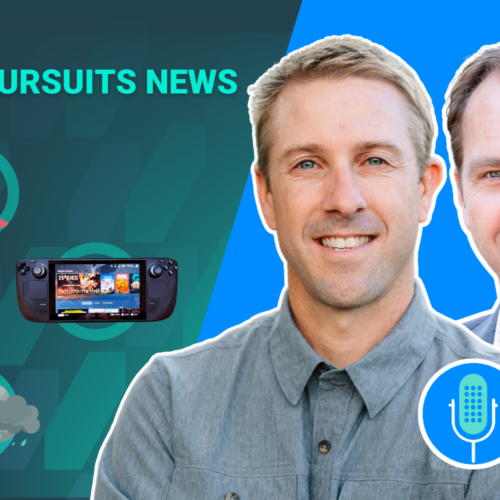

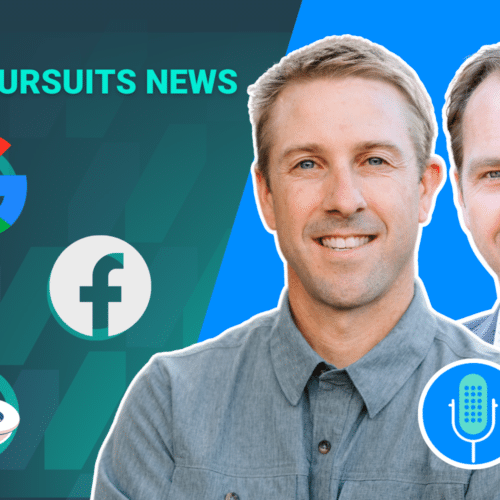







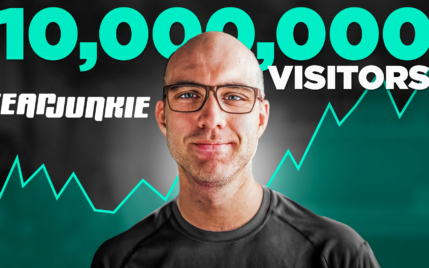


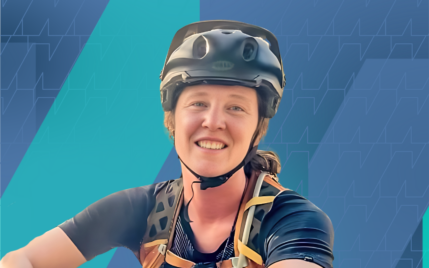


19 Comments
Conversation
I think you forgot to add the play button
Yikes, thanks for the heads up. Fixed.
Great read – hoping I can ask a few things:
1 – Does competition research change based on these non-buyer keywords? For instance are large sites like Quora, Wikihow, Instructables, etc all sites you’d avoid?
2 – In other posts, Spencer has provided some filter to find buyer keywords like “best”, “vs”, etc. Are there similar ones for these informational sites like “is”, “can”, “how”, “where”, etc? Just curious on any tips for filtering keywords.
3 – Regarding the comparison tables and someone ripping you off. Are you creating the table in TablePress and then creating your own image based on that table? I’m not sure I understand if I use a table with content how people are going to rip it off vs using an image. Probably something basic I am missing.
Thank you.
Good questions Aaron.
1. I tend to look for low keyword difficulty keywords. By low, I’m talking about 0 to 10 in Ahrefs, with a preference on 0 to 3. I don’t do much analysis beyond that.
2. My course has a seed keyword vault for non-buyer intent where I list 125 seed keywords that I’ve discovered over the years. While not all work in all niches, many do as I operate 9 sites all in very different niches.
3. Table Press works, but I tend to make my charts in Google Sheets and export it as a png. It’s faster.
Thank you! That helps – never even thought about Google Sheets!
Interesting Podcast & transcript (bookmarked)
Regarding the tables as pictures, would offering an embed code increase the backlinking?
I see all the buttons for sharing on Pinterest, so a “Get the Code to use this pic on your site” button could work.
Thanks for sharing any experience or ideas.
T
Super content. Very valuable information here.
Thanks as always.
Isn’t this old news? Is he still making this kind of money nowadays?
Since you stopped publishing the date of articles and comments I see a lot of re-used content.
Is it still working today?
Sorry, date in the comments I meant. The other one is easy to update.
Hey Femke,
It’s still working. Dates are on blog posts. I’ve published recent content on the blog – quite a bit this year. Yes, there are some old posts that could use updating, but I keep the blog current.
So the guy makes $40.000/month and he’s willing to teach his secrets for $40? Must be legit.
Hey James,
The thing is there really are no secrets. The value in the course is I explain the approach I take, which includes tutorials on how to actually execute. There are so many ways to go about all this stuff – we all have to make choices. We can’t do everything. I pick and choose what I do to grow niche sites and that’s what I set out in the course.
But yeah, I see how you’d conclude I made everything up based on pricing a course at $47. I’d be suspicious too.
Great stuff Jon
I’ve been following your success for the past 2 years. Would you mind telling us what sort of traffic your site gets and what sort of CPM/RPM you make?
Also would you mind sharing with us how you increase the page views for each visitor?
I know that you are genuine because I follow you for quite some time. I can see that you have charts from the end of last year. But I believe that for people who don’t know you, adding recent screenshots of earnings etc. will greatly improve your credibility.
Hi Dave,
Sorry, I don’t reveal RPM at all because that’s against AdSense TOS. Therefore, since I report revenue for my sites in my income reports, I can’t provide page views and traffic levels because you could easily calculate RPMs from that.
Screenshots: Yes, I do occasionally include some screenshots in my reports and I’m overdue for doing so. I don’t do it every month because I’m lazy (or pressed for time), but I’ll add some just so people know I don’t make this stuff up.
For increasing page views, that’s a something I divulge in my course. Sorry, but I gotta keep a few tips up my sleeve in the course.
What is the difference between DA and PA?
Domain authority and Page Authority.
Awesome interview with great tips!
I love your podcasts Spencer. They are very useful for me and I always find something that I use on my sites later.
I’m glad you do it.
Thanks Michal!